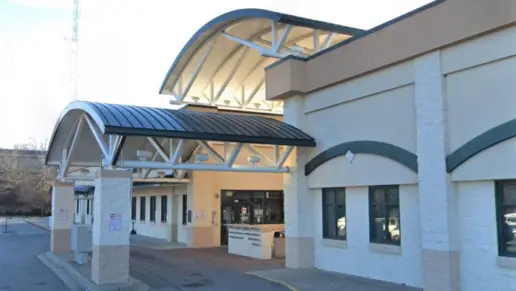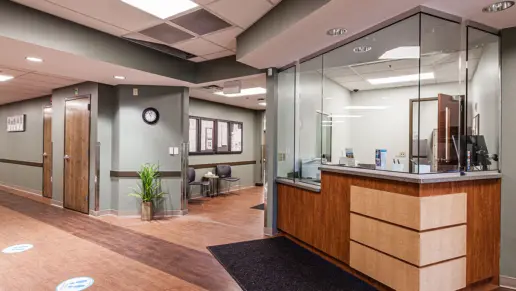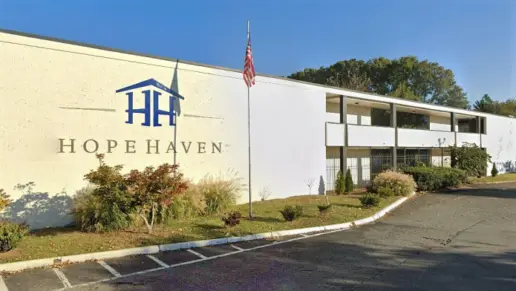I went to hope valley in 2023 and it was absolutely amazing. The staff is very experienced and extremely compassionate. I was heartbroken when I finished my stay there. It was such a quiet and beautiful place to get sober. I highly recommend this little place away from h ...
About Out Reach For Women Substance
Hope Valley’s Women’s Division is in Pilot Mountain, North Carolina. It’s an alcohol and drug rehab center for adult women. They offer research-based interventions to treat addiction while working to reduce stigma and enhance recovery. Their programs include residential treatment and aftercare support. Family support services are also available for your loved ones.
Residential treatment at Hope Valley- Women’s Division takes place in a tranquil, countryside setting that promotes calmness and healing. It can accommodate up to eight clients at a time. The program includes research-based interventions to treat addiction at its root. A fully licensed staff utilizes different therapy models. The purpose is to remove the obstacles of daily living and provide a safe and structured environment where recovery can begin. Plus, twice monthly, they provide a family program that educates you on the family disease model.
Ensuring the family unit understands the complexity of addiction is important. Their family support program provides information on alcoholism/addiction, codependency, family dynamics, communication, recovery, and relapse prevention. It also touches upon the fact that addiction is a family disease and provides ways for your family to begin to heal.
Throughout residential treatment, the tenets of the 12 Step recovery model are incorporated. This is a common model based on Alcoholics Anonymous. Beginning steps involve admitting powerlessness over the addiction and creating a plan for recovery based on a Higher Power. Middle steps include self-examination and making amends to those who’ve been hurt by the addiction. The later steps include continuing to take personal inventory while living a life of recovery and supporting others in doing the same. Additional 12 Step groups include Narcotics Anonymous (NA), Cocaine Anonymous (CA), Dual Recovery Anonymous (DRA), Sex and Love Addicts Anonymous (SLAA), and Gamblers Anonymous (GA).
They’re in-network with most commercial insurance providers. Confirm your coverage with your individual provider as out of network benefits might vary. They’re also accredited by the Commission on Accreditation of Rehabilitation Facilities (CARF).
Latest Reviews
Location
Location
Accepted Insurance
Other Forms of Payment
Private insurance refers to any kind of healthcare coverage that isn't from the state or federal government. This includes individual and family plans offered by an employer or purchased from the Insurance Marketplace. Every plan will have different requirements and out of pocket costs so be sure to get the full details before you start treatment.
Self-pay involves paying for treatment out of your own pocket. You can use savings or credit, get a personal loan, or receive help from family and friends to fund your treatment. If you don't have insurance or your insurance plan doesn't cover a specific program, self-pay can help ensure you still get the care you need.
Financial aid can take many forms. Centers may have grants or scholarships available to clients who meet eligibility requirements. Programs that receive SAMHSA grants may have financial aid available for those who need treatment as well. Grants and scholarships can help you pai for treatment without having to repay.
Medicaid is a state based program that helps lower-income individuals and families pay for healthcare. Medicaid covers addiction treatment so those enrolled can use their coverage to pay for rehab. When a program accepts Medicaid the client often pays very little or nothing out of their own pocket.
Military members, veterans, and eligible dependents have access to specific insurance programs that help them get the care they need. TRICARE and VA insurance can help you access low cost or no cost addiction and mental health treatment. Programs that accept military insurance often have targeted treatment focused on the unique challenges military members, veterans, and their families face.
Addiction Treatments
Levels of Care
Treatments
The goal of treatment for alcoholism is abstinence. Those with poor social support, poor motivation, or psychiatric disorders tend to relapse within a few years of treatment. For these people, success is measured by longer periods of abstinence, reduced use of alcohol, better health, and improved social functioning. Recovery and Maintenance are usually based on 12 step programs and AA meetings.
There are many types of drug rehab in North Carolina. To receive treatment for addiction, you can choose from many inpatient and outpatient programs. Often, participants start with detox and work through a full continuum of care that continues with ongoing support for long-term recovery.
Opioid rehabs specialize in supporting those recovering from opioid addiction. They treat those suffering from addiction to illegal opioids like heroin, as well as prescription drugs like oxycodone. These centers typically combine both physical as well as mental and emotional support to help stop addiction. Physical support often includes medical detox and subsequent medical support (including medication), and mental support includes in-depth therapy to address the underlying causes of addiction.
Substance rehabs focus on helping individuals recover from substance abuse, including alcohol and drug addiction (both illegal and prescription drugs). They often include the opportunity to engage in both individual as well as group therapy.
Programs





Clinical Services
Clients who receive cognitive behavioral therapy in North Carolina typically attend five to 20 sessions. During this time, they work with their therapist to learn healthier patterns of thinking, which can help them change their behavior related to substance use.
Group therapy is any therapeutic work that happens in a group (not one-on-one). There are a number of different group therapy modalities, including support groups, experiential therapy, psycho-education, and more. Group therapy involves treatment as well as processing interaction between group members.
In individual therapy, a patient meets one-on-one with a trained psychologist or counselor. Therapy is a pivotal part of effective substance abuse treatment, as it often covers root causes of addiction, including challenges faced by the patient in their social, family, and work/school life. At individual sessions, the resident has the opportunity to communicate in depth, specially on the feelings level.
If you're struggling with insecurity about your ability to make changes in your life, motivational interviewing in North Carolina could be a good solution. This type of therapy offers support and empowerment to help you explore your options and decide how to move forward with positive changes.
Trauma therapy helps you reclaim your life after experiencing or witnessing a traumatic event. Therapists help to process these memories, which promotes emotional healing and reduces anxiety in social situations. This improves your overall well being and increases your self confidence.
Research clearly demonstrates that recovery is far more successful and sustainable when loved ones like family members participate in rehab and substance abuse treatment. Genetic factors may be at play when it comes to drug and alcohol addiction, as well as mental health issues. Family dynamics often play a critical role in addiction triggers, and if properly educated, family members can be a strong source of support when it comes to rehabilitation.
Routine tasks are difficult for someone experiencing addiction. Daily skills deteriorate, which makes it harder to achieve recovery. That's why drug rehab programs in North Carolina reteach basic life skills. This gives you the tools you need to manage daily life without returning to substance use.
You can participate in creative arts therapy in a variety of settings. Options include medical institutions, rehab facilities, and therapists' offices. Sessions are held in individual and group formats. Types of therapy include music, drama, dance, and painting.
When you participate in experiential therapy in North Carolina, you'll harness creative expression to release negative emotions and experience positive ones. This happens through hands on interventions such as music, art, animal care, culinary arts, and drama.
Amenities
-
Art Activities
-
Residential Setting
-
Private Rooms
-
Farm Setting
Accreditations

State Licenses are permits issued by government agencies that allow rehab organizations to conduct business legally within a certain geographical area. Typically, the kind of program a rehab facility offers, along with its physical location, determines which licenses are required to operate legally.
State License: North Carolina
Contact Information
152 Hope Valley Road
Pilot Mountain, NC 27041








